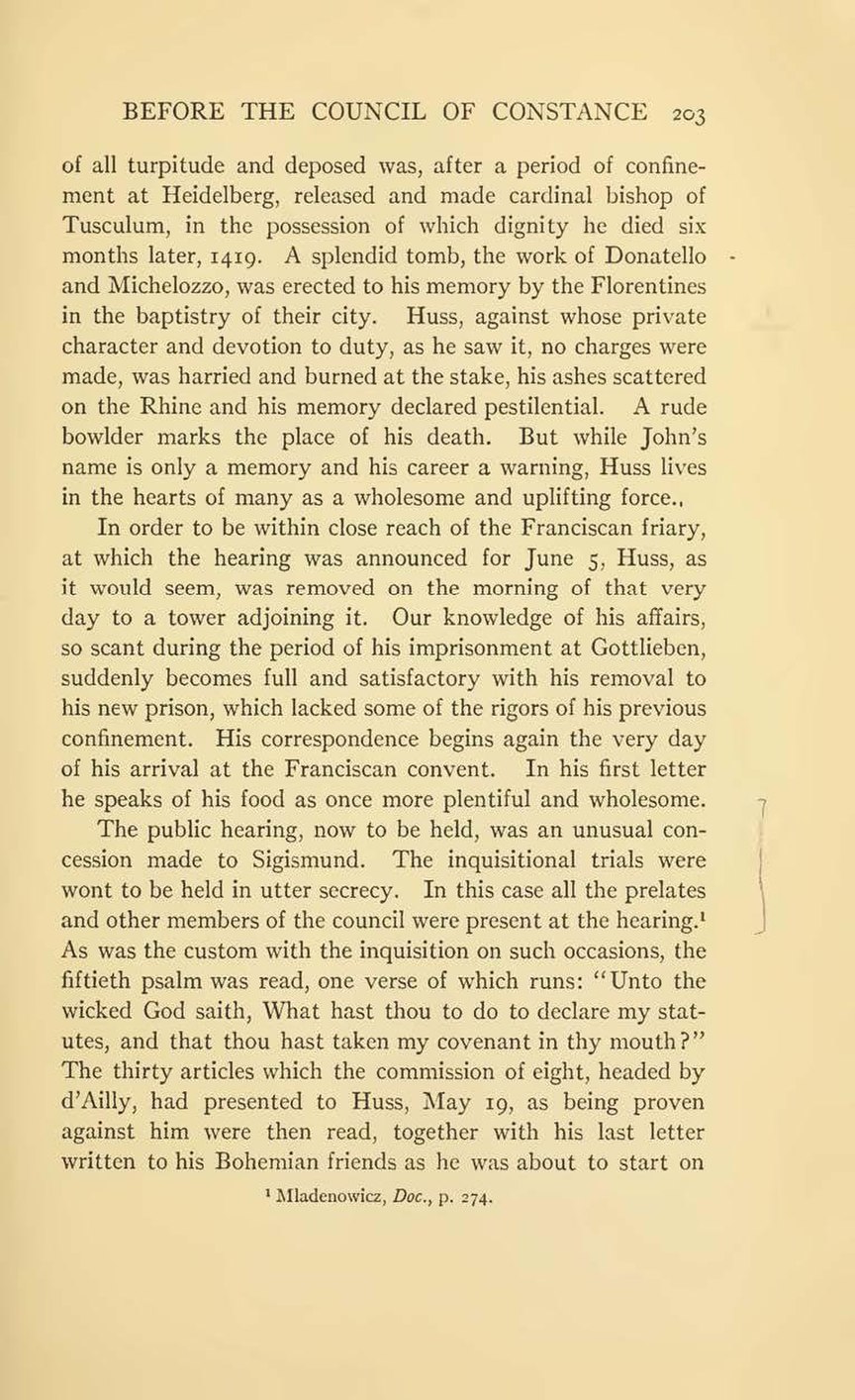of all turpitude and deposed was, after a period of confinement at Heidelberg, released and made cardinal bishop of Tusculum, in the possession of which dignity le died six months later, 1419. A splendid tomb, the work of Donatello and Michelozzo, was crected to his memory by the Florentines in the baptistry of their city. Huss, against whose private character and devotion to duty, as he saw it, no charges were made, was harried and burned at the stake, his ashes scattered on the Rhine and his memory declared pestilential. A rude bowlder marks the place of his death. But while John’s name is only a memory and his carcer a warning. Huss lives in the hearts of many as a wholesome and uplifting force.
In order to be within close reach of the Franciscan friary, at which the hearing was announced for June 5. Huss, as it would seem, was removed on the morning of that very day to a tower adjoining it. Our knowledge of his affairs, so scant during the period of his imprisonment at Gottlieben, suddenly becomes full and satisfactory with his removal to his new prison, which lacked some of the rigors of his previous confinement. His correspondence begins again the very day of his arrival at the Franciscan convent. In his first letter he speaks of his food as once more plentiful and wholesome.
The public hearing, now to be held, was an unusual concession made to Sigismund. The inquisitional trials were wont to be held in utter secrecy. In this case all the prelates and other members of the council were present at the hearing.[1] As was the custom with the inquisition on such occasions, the fiftieth psalm was read, one verse of which runs: “Unto the wicked God saith. What hast thou to do to declare my statutes, and that thou hast taken my covenant in thy mouth?” The thirty articles which the commission of eight, headed by d’Ailly, had presented to Huss, May 19, as being proven against him were then read, together with his last letter written to his Bohemian friends as he was about to start on
- ↑ Mladenowicz, Doc., p. 274.
